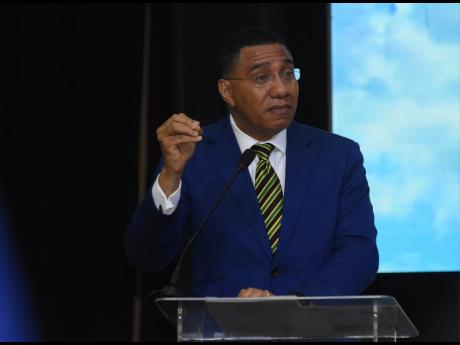Editorial | Twist on labour productivity
The South Cambridgeshire District Council in England ran an interesting experiment, which it decided to continue.
At the start of 2023, the Lib-Dem-controlled local government cut working hours for council staff by 20 per cent. It achieved significant gains in output.
It is not clear what lessons, if any, this outcome has for Jamaica’s ongoing debate over low, and declining, labour productivity. Nonetheless, the South Cambridgeshire results are worth paying attention to by the island’s policymakers and labour market analysts.
At the same time, the labour ministry should commission an analysis of the performance of Jamaica’s flexi-work regime, including why, eight years after the legislation was passed, it appears to have had relatively little impact on Jamaica’s work environment. The productivity gains it was expected to spark have not materialised.
Indeed, as government data show, in the half a decade up to 2022, output per worker declined at an annual average rate of 0.8 per cent.
Over the previous 48 years, the decline averaged 12.76 per cent a year.
This decline persists despite the island’s record low unemployment rate (currently at 2.6 per cent) over the past two years. The matter has been frustrating for Prime Minister Andrew Holness.
He told a recent Jamaican Diaspora Conference in Montego Bay: “Whenever I use the word ‘productivity’, a large part of the country hears ‘hard work’ or ‘more work’. They think, ‘They want us to work more and aren’t paying us more’. As prime minister, I have to be very careful how I deal with these delicate subjects because of our history. But it has to be addressed.”
EXPLORE ALL OPTIONS
However, the Government has not yet offered a clear strategic or tactical vision of how the problem is to be tackled. That is why this newspaper contends that the administration should open a robust debate on productivity. It must be ready to explore all options, including experiments like that of the South Cambridgeshire District Council.
When the council embarked on its project, to the displeasure of Britain’s then Conservative government, the aim, it said, was to put itself in a position to attract talent in a competitive labour market.
It also intended to improve services by filling vacant positions, instead of relying on more expensive agency temps. Relying less on agency staff would cut costs.
Significantly, the council’s more than 450 employees (and, later, waste lorry workers who joined the scheme) were expected to complete 100 per cent of their work in 80 per cent of the time and retain 100 per cent of their pay. It was the largest trial of a four-day workweek in the UK’s public sector.
This week, the British press reported on an analysis of the experiment by researchers at the universities of Cambridge and Salford, which showed:
• A 39 per cent decline in staff turnover;
• Time-off for illness dropped by a third;
• £371,500 was saved by drastically reducing the need for agency staff;
• Regular house planning applications were, on average, settled a week and a half earlier;
• Major planning applications completed within the stipulated time increased by 15 per cent; and
• The time taken to process council benefits also fell.
There were a few areas, such as slower collection of council home rentals, where the statistics went marginally south, but these were largely attributed to the UK’s inflation problems.
JURY STILL OUT
The jury remains out on whether these gains are sustainable over the long term, rather than a year and a half, and whether they are transferable to other countries.
However, the data raise interesting possibilities and suggest the need for a revisit of Jamaica’s flexi-week law, although it is not strictly parallel to the South Cambridgeshire District Council experiment.
Under the flexi-week arrangements, Jamaican workers, in agreement with their managers, can complete their 40-hour workweek over any five days. Saturdays and Sundays are no longer rest days.
Additionally, employees can, by agreement, work 12-hour days and complete the 40-hour workweek in fewer than five days.
Unlike the earlier system, when workers received extra pay after working eight hours for a day, overtime payment does not kick in until after the completion of 40 hours of work.
The anecdotal evidence suggests that neither employees nor firms have been especially enthusiastic about implementing these arrangements. Neither has flexi-work factored much in any discussion about lifting labour productivity.
This newspaper has previously called for broad discussion on labour market reform, using as the platform the Marshall Hall commission report on the issue, completed five years ago.
That report, unfortunately, was not subjected to extensive review. It should now be retabled in Parliament and taken to the human resources and production committee for hearings, at which the larger question of an industrial policy should also be aired.

